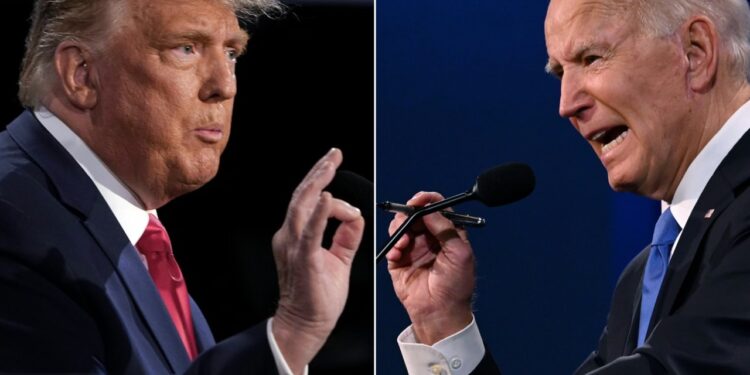Donald Trump has revived an outlandish conspiracy theory, reposting a claim on social media that President Joe Biden died in 2020 and was replaced by body doubles or clones. The former president shared the content without commentary on Truth Social, sparking immediate backlash and renewed concerns over the tone of his political messaging.
The post Trump reshared comes from a known conspiracy theorist and falsely suggests that Biden’s current public appearances are staged using lookalikes. The original post includes photos implying changes in Biden’s physical features, such as earlobes and facial structure, as supposed “evidence” of substitution — claims that have long been debunked by fact-checkers and medical experts.
This latest amplification of fringe rhetoric underscores Trump’s strategy of aligning with elements of the far-right internet culture, especially as the 2024 election cycle heats up. Critics say it is a calculated move to energise his base by flirting with the boundaries of political reality, while distancing himself from direct accountability by using reposts rather than original statements.
Biden’s campaign has not officially responded to the claim, but Democratic allies quickly condemned the stunt. “It’s irresponsible and dangerous,” said Representative Dan Goldman. “Pushing baseless conspiracies erodes trust in democratic institutions and public life.”
The idea that public figures are being replaced with clones or actors has circulated in online communities for years, often accompanied by low-quality photographic comparisons and references to secret cabals. Experts on disinformation warn that while such claims may seem ridiculous, they contribute to a larger ecosystem of mistrust, particularly among undecided or disillusioned voters.
This is not the first time Trump has engaged with or lent credence to conspiracy-adjacent material. During his presidency, he refused to disavow QAnon supporters and regularly amplified accounts that spread falsehoods. His approach reflects a media strategy rooted in provocation, misdirection, and the deliberate bending of truth to control narrative momentum.
Trump’s repost arrives amid intensifying legal pressures and an increasingly volatile campaign atmosphere. With both candidates’ health and mental fitness likely to be under the microscope this year, Trump’s decision to play into personal smears signals that the 2024 election may descend further into misinformation-fuelled attacks.
Analysts note that while many Americans can distinguish satire from reality, the repetition of such theories by high-profile figures can normalise them in the public conversation. “This isn’t just about fringe ideas anymore,” said Claire Wardle, a misinformation researcher. “It’s about how trust in the system is actively undermined by those who benefit from chaos.”
newshub finance



Recent Comments